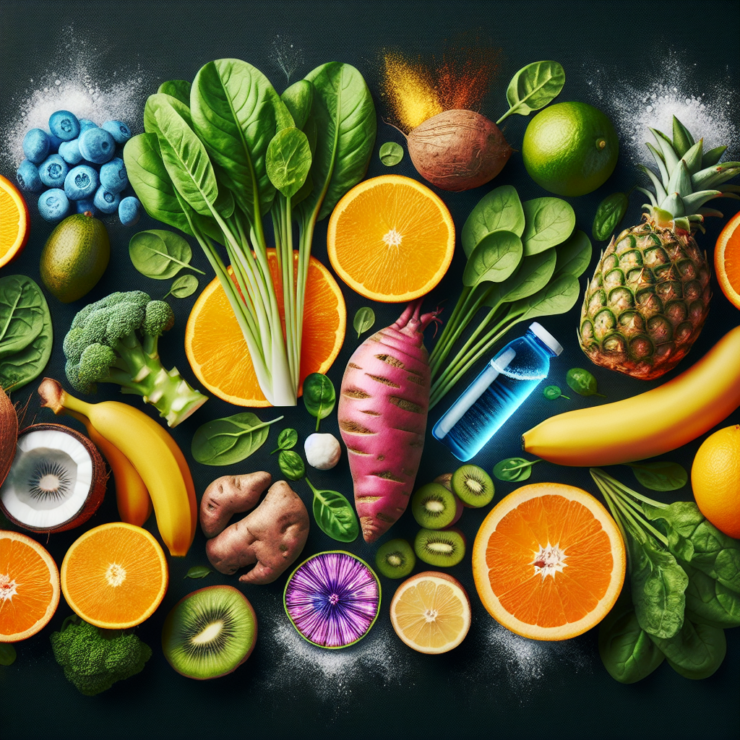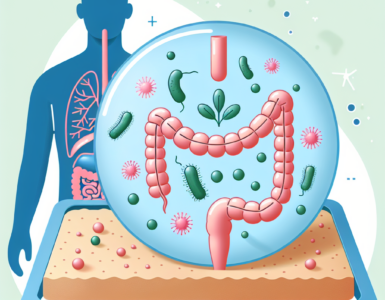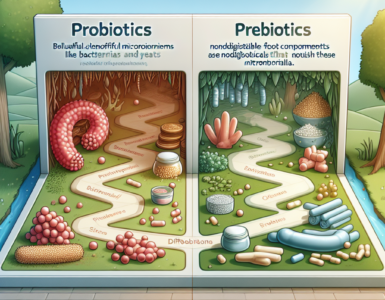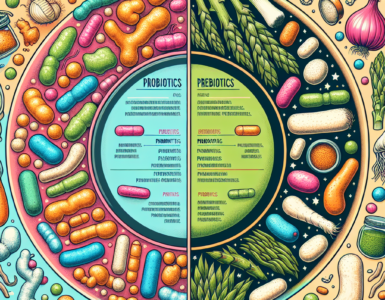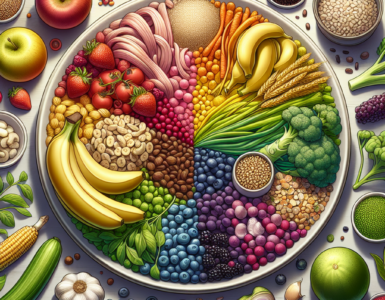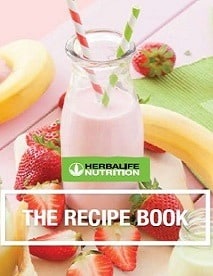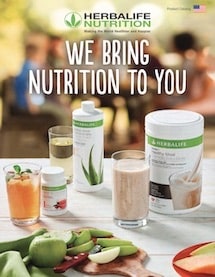The Role of Electrolytes in Physical Activity
Electrolytes play a pivotal role in maintaining the body’s balance and function, especially during physical activity. Their importance in exercise and fitness cannot be overstated.
What Are Electrolytes?
Electrolytes are minerals with an electric charge. They are found in bodily fluids and are essential for a variety of physiological processes. The primary electrolytes include sodium, potassium, chloride, calcium, magnesium, phosphate, and bicarbonate.
These charged minerals help regulate nerve and muscle function, hydrate the body, balance blood acidity and pressure, and help rebuild damaged tissue. Each electrolyte serves a specific purpose, and together, they maintain the body’s fluid balance.
Why Are Electrolytes Essential for Workout Performance?
During a workout, the body sweats to help regulate its temperature. Sweating, while beneficial for cooling the body, also results in the loss of electrolytes and fluids. This loss can lead to an imbalance, which can affect performance and overall health.
Electrolytes contribute to muscle contraction and relaxation. For instance, calcium is crucial for muscle contractions, magnesium aids in muscle relaxation, and potassium helps muscles to function properly. They also assist in maintaining the balance of fluids both inside and outside of cells, which affects cellular function, blood volume, and blood pressure.
Maintaining electrolyte levels is essential for individuals engaging in long-duration or high-intensity exercise, as the risk of dehydration and electrolyte imbalance increases with the intensity and duration of the workout. An imbalance can lead to symptoms like muscle cramps, fatigue, nausea, and even more severe complications like cardiac arrhythmia.
It’s important for those who participate in regular physical activity to ensure they are consuming electrolyte-rich foods to replenish what is lost through sweat. This will not only improve workout performance but also aid in recovery and prevent potential negative health effects caused by an electrolyte imbalance.
Identifying Electrolyte-Rich Foods
Electrolytes are essential minerals that play a critical role in maintaining bodily functions, especially during physical activity. Identifying foods rich in these minerals is crucial for individuals who engage in regular workouts to ensure optimal performance and recovery.
Categories of Electrolytes and Their Functions
Electrolytes include a variety of minerals such as sodium, potassium, calcium, magnesium, chloride, phosphate, and bicarbonate. Each of these electrolytes serves a specific function in the body.
| Electrolyte | Function |
|---|---|
| Sodium | Regulates fluid balance, nerve function, and muscle contractions |
| Potassium | Helps with muscle contractions, fluid balance, and nerve signals |
| Calcium | Vital for muscle contractions, nerve signaling, and blood clotting |
| Magnesium | Supports muscle and nerve function, and energy production |
| Chloride | Maintains fluid balance and is an essential component of digestive acids |
| Phosphate | Helps in the formation of bones and teeth, and helps in energy production |
| Bicarbonate | Regulates heart function and helps in maintaining pH balance |
A balanced intake of these electrolytes through diet can significantly enhance workout performance and aid in post-exercise recovery.
Signs of Electrolyte Imbalance
An electrolyte imbalance can manifest in various ways and can negatively impact workout results. Recognizing the signs of imbalance is essential to correct the issue promptly.
| Sign of Imbalance | Possible Electrolyte Deficiency |
|---|---|
| Muscle cramps or spasms | Potassium, Magnesium, Calcium |
| Fatigue or Lethargy | Sodium, Potassium |
| Irregular heartbeat | Potassium, Magnesium |
| Headaches | Sodium, Potassium |
| Dizziness | Sodium, Potassium, Magnesium |
| Nausea or Vomiting | Sodium, Potassium |
If one experiences these symptoms, they should assess their diet and consider increasing their intake of electrolyte-rich foods. In some cases, if symptoms persist, seeking medical advice is recommended to address any underlying issues that may be causing the imbalance.
Fruits as an Electrolyte Source
Fruit serves as an excellent source of essential electrolytes, which are vital for maintaining hydration and ensuring proper muscle function during physical activity. Two standout fruits in the electrolyte department are bananas and citrus fruits.
Bananas: Potassium Powerhouses
Bananas are renowned for their high potassium content, an electrolyte that plays a crucial role in muscle function and heart health. For individuals who engage in regular exercise, consuming bananas can help replenish potassium lost through sweat and maintain electrolyte balance.
| Serving Size | Potassium Content (mg) |
|---|---|
| 1 medium banana | 422 |
| 1 large banana | 487 |
In addition to their potassium-rich profile, bananas also offer a quick source of energy, making them an ideal snack before or after a workout. They can be easily incorporated into a variety of meals, such as smoothies or oatmeal, providing both nutritional value and a sweet taste.
Citrus Fruits: A Splash of Electrolytes
Citrus fruits, including oranges, lemons, and limes, are not only refreshing but also packed with electrolytes. They are particularly rich in potassium and magnesium, another key electrolyte involved in muscle contractions and energy production.
| Fruit | Potassium Content (mg) | Magnesium Content (mg) |
|---|---|---|
| 1 medium orange | 237 | 13 |
| 1 medium lemon | 80 | 4 |
| 1 medium lime | 68 | 4 |
Citrus fruits also provide a healthy dose of vitamin C, which supports the immune system and aids in the absorption of iron from plant-based foods. Their tangy flavor and versatility make them a popular choice for adding a zesty twist to water, salads, or as a standalone snack.
By incorporating bananas and citrus fruits into one’s diet, individuals can enjoy a natural and delicious way to maintain electrolyte levels and support their active lifestyles. These fruits are not only conducive to peak physical performance but also contribute to overall health and wellness.
Vegetables and Their Electrolyte Content
Vegetables are not only packed with vitamins and fiber but also come loaded with essential electrolytes. These vital minerals help regulate numerous bodily functions, particularly during physical activity.
Leafy Greens: Magnesium and Potassium
Leafy greens like spinach and kale are notable for their magnesium and potassium content. Magnesium plays a key role in muscle function and energy production, while potassium is crucial for heart health and muscle contractions. Including a variety of leafy greens in one’s diet can help ensure an adequate intake of these electrolytes.
| Vegetable | Magnesium (mg per 100g) | Potassium (mg per 100g) |
|---|---|---|
| Spinach | 79 | 558 |
| Kale | 33 | 491 |
| Swiss Chard | 81 | 379 |
A serving of leafy greens can significantly contribute to the daily recommended intake of these electrolytes. They can be easily incorporated into meals as salads, smoothies, or side dishes.
Avocados: Healthy Fats and Electrolytes
Avocados are a powerhouse of nutrients, providing not only healthy fats but also a substantial amount of electrolytes. They are particularly high in potassium, which can help balance the electrolytes lost during a strenuous workout.
| Nutrient | Amount per 100g |
|---|---|
| Potassium | 485 mg |
| Magnesium | 29 mg |
| Sodium | 7 mg |
Avocados also contain sodium and magnesium, making them an all-around excellent choice for replenishing electrolyte levels. Their creamy texture and rich flavor make them versatile for various dishes, from guacamole to avocado toast or even as a smoothie ingredient.
By emphasizing the consumption of vegetables high in electrolytes, individuals who are active can maintain optimal nutrient balance. These foods serve not only to enhance workout performance but also support overall well-being.
Dairy and Alternative Sources
Dairy products and their alternatives serve as an important source of electrolytes, which are essential for individuals engaging in physical activities. Electrolytes like calcium are pivotal for muscle function, nerve signaling, and maintaining hydration levels.
Milk and Yogurt: Calcium-Rich Options
Milk and yogurt are traditional dairy staples renowned for their high calcium content, one of the key electrolytes. The calcium found in these dairy products is crucial for bone health as well as the proper functioning of muscles and nerves.
| Dairy Product | Electrolytes (per cup) |
|---|---|
| Milk | Calcium: 300 mg |
| Yogurt | Calcium: 450 mg |
In addition to calcium, milk and yogurt provide other electrolytes such as potassium and magnesium, albeit in lower quantities. These electrolytes work in harmony to support the body’s hydration and recovery post-workout.
Plant-Based Milks: Electrolytes for the Lactose Intolerant
For those who are lactose intolerant or prefer plant-based diets, alternative milks made from nuts, soy, or grains are valuable sources of electrolytes. While these alternatives may vary in their electrolyte content, many are fortified with calcium to match or exceed the levels found in cow’s milk.
| Plant-Based Milk | Electrolytes (per cup) |
|---|---|
| Soy Milk | Calcium: 300 mg (if fortified) |
| Almond Milk | Calcium: 450 mg (if fortified) |
It’s important to check the nutrition labels when selecting plant-based milks to ensure they are fortified with electrolytes, as the natural electrolyte content can be significantly lower than that of dairy milk. Regardless of the source, incorporating these calcium-rich beverages into one’s diet can greatly benefit overall electrolyte balance, especially in combination with a well-rounded nutrition plan tailored for physical activity.
Proteins with Electrolytes
Proteins are essential for repairing and building muscle tissue, especially after intense physical activity. However, many individuals may not be aware that certain protein sources can also be rich in electrolytes, contributing to the body’s hydration and electrolyte balance.
Fish: Omega-3s and Sodium
Fish is widely recognized for its high content of omega-3 fatty acids, which are crucial for heart health and inflammation reduction. Additionally, fish is a source of essential electrolytes, including sodium, which plays a vital role in muscle function and fluid balance.
| Fish Type | Sodium Content (mg per 3 oz) |
|---|---|
| Salmon | 50-60 |
| Tuna | 40-50 |
| Halibut | 60-70 |
| Cod | 60-70 |
Including fish in one’s diet provides not only valuable protein and omega-3 fatty acids but also contributes to one’s daily electrolyte needs, particularly sodium, which can be lost through sweat during exercise.
Nuts and Seeds: Snackable Electrolyte Sources
Nuts and seeds are not only packed with protein and healthy fats; they also offer a convenient source of electrolytes such as magnesium and potassium. These minerals are pivotal for muscle contraction, relaxation, and overall cardiovascular health.
| Nut/Seed Type | Potassium Content (mg per 1 oz) | Magnesium Content (mg per 1 oz) |
|---|---|---|
| Almonds | 200 | 80 |
| Sunflower Seeds | 220 | 50 |
| Pumpkin Seeds | 260 | 150 |
| Cashews | 160 | 75 |
Incorporating a variety of nuts and seeds into one’s diet can be an excellent way to ensure adequate intake of both macronutrients and essential electrolytes. Whether consumed as a snack or added to meals, these nutrient-dense foods can support an active lifestyle by replenishing electrolytes lost during workouts.
Hydration and Electrolytes
Maintaining hydration is a critical component of overall health, especially during physical activity. Water serves as the primary medium through which electrolytes are transported within the body, making it essential for numerous bodily functions, including muscle contraction and nerve impulse transmission.
The Importance of Water Intake
Water intake is vital for replenishing fluids lost through sweat during exercise. Adequate hydration ensures that electrolytes remain in balance and can perform their functions effectively. Individuals engaging in regular physical activity should pay particular attention to their fluid intake before, during, and after workouts to maintain optimal hydration levels.
| Activity Level | Suggested Water Intake (8 oz glasses) |
|---|---|
| Low (Less than 30 min) | 6-8 |
| Moderate (30-60 min) | 8-10 |
| High (Over 60 min) | 10-12 |
Coconut Water: A Natural Electrolyte Drink
Coconut water has gained popularity as a natural alternative to commercial sports drinks due to its high electrolyte content. It contains key electrolytes such as potassium, sodium, magnesium, and calcium, which are essential for rehydration and replenishing the body post-exercise.
The following table highlights the electrolyte content in an average serving of coconut water:
| Electrolyte | Amount per 8 oz |
|---|---|
| Potassium | 600 mg |
| Sodium | 252 mg |
| Magnesium | 60 mg |
| Calcium | 58 mg |
Coconut water can be a refreshing option for those looking to rehydrate naturally while providing their body with essential electrolytes. However, it’s important to consider individual electrolyte needs and to consume a balanced diet inclusive of other electrolyte-rich foods for comprehensive nutritional support.
Preparing Electrolyte-Rich Meals
Creating meals that enhance your workout can be straightforward and delicious. By incorporating electrolyte-rich foods into your diet, you can support your body’s hydration and energy levels.
Simple Ingredient Combinations
Combining ingredients that are high in electrolytes can be done with ease. Here are some meal ideas that pack an electrolyte punch:
- Breakfast Smoothie: Blend bananas, a handful of spinach, yogurt, and a splash of coconut water for a potassium and calcium-rich drink.
- Citrus Avocado Salad: Mix leafy greens, slices of citrus fruits, and avocado for a refreshing salad full of magnesium, potassium, and other vital electrolytes.
- Nutty Yogurt Parfait: Layer Greek yogurt with a mix of nuts and seeds, and top with fresh berries for a snack that provides a balance of calcium, magnesium, and sodium.
Carefully selecting ingredients that are rich in electrolytes can help you craft meals that not only satisfy your taste buds but also support your physical activity.
Timing Your Intake Around Workouts
To maximize the benefits of electrolyte-rich foods, it’s important to consider when you consume them in relation to your workout routine.
- Pre-Workout: Eat a small, balanced meal 2-3 hours before exercising to ensure your body has the nutrients it needs. A meal could include a combination of complex carbohydrates and proteins, such as whole-grain toast with almond butter and slices of banana.
- Post-Workout: Within 30 minutes to an hour after your workout, focus on replenishment. A meal or snack that includes proteins and electrolytes, like a spinach and avocado omelet, can aid in recovery and rehydration.
By timing your intake of electrolyte-rich foods, you can help your body prepare for a workout and recover more effectively afterward.
Additional Considerations
While incorporating electrolyte-rich foods into one’s diet is important for maintaining balance during physical activities, it should be part of a broader nutritional strategy. Understanding the interplay between electrolytes and overall nutrition is essential.
Balancing Electrolyte Intake with Overall Nutrition
Electrolytes should not be considered in isolation but as a part of the larger nutritional puzzle. It is important for individuals to ensure that their intake of electrolyte-rich foods complements a balanced diet rich in vitamins, minerals, proteins, and other nutrients.
| Nutrient | Recommended Daily Intake | Function |
|---|---|---|
| Sodium | 2,300mg | Regulates fluids, nerve function |
| Potassium | 3,400mg for men, 2,600mg for women | Muscle contractions, heart function |
| Calcium | 1,000mg | Bone health, muscle function |
| Magnesium | 400-420mg for men, 310-320mg for women | Muscle and nerve function, blood glucose control |
It is crucial to consume a variety of foods to meet these nutrition needs. For example, while bananas are a great source of potassium, they lack other essential nutrients like protein and fat, which are also necessary for a well-functioning body. Therefore, incorporating a mix of fruits, vegetables, dairy, and proteins ensures a diet that supports overall health and athletic performance.
Understanding When You Might Need Supplements
While most individuals can meet their electrolyte needs through a balanced diet, there are certain situations where supplements might be beneficial:
- Intense or prolonged physical activity, especially in hot climates, can lead to significant electrolyte loss through sweat.
- Individuals with dietary restrictions or allergies may find it challenging to obtain all necessary electrolytes from food alone.
- Certain health conditions, such as kidney disorders, can affect electrolyte balance and may require targeted supplementation.
Before considering electrolyte supplements, it is advisable to consult with a healthcare provider or a nutrition expert. They can help assess individual needs based on lifestyle, health status, and dietary habits.
It’s also important to be cautious of overconsumption of electrolytes, which can lead to imbalances and health issues. For example, excess sodium can contribute to high blood pressure, while too much potassium can lead to hyperkalemia, a condition that can affect heart rhythm.
When it comes to maintaining electrolyte balance, a thoughtful approach to diet, an understanding of individual needs, and professional guidance can ensure that one’s nutritional strategy supports their fitness goals and overall health.
Disclaimer: This content is for informational purposes only and is not intended as medical advice or a substitute for professional healthcare consultation. Before making any changes to your hydration or electrolyte intake, especially if you engage in regular physical activity, consult with a healthcare professional or a qualified sports nutritionist. Individual needs may vary, and professional guidance is crucial to ensure that any dietary adjustments are safe and effective for your specific health conditions and activity levels. Use of this information is at your own risk.


